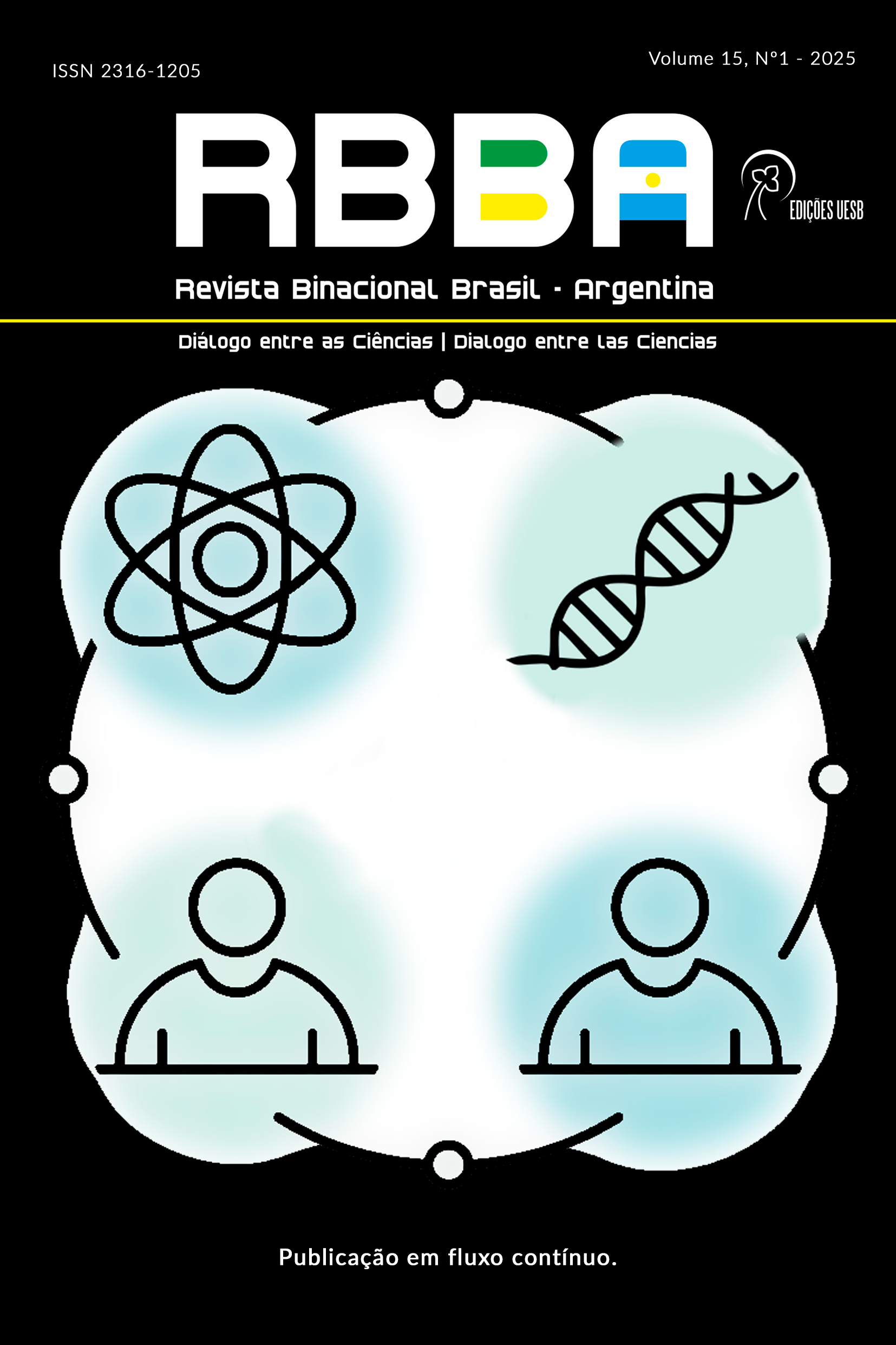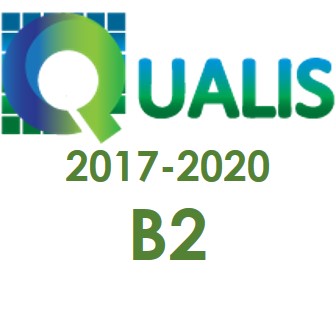Working with Ilya Prigogine logic: the method
DOI:
https://doi.org/10.22481/rbba.v15i1.16765Keywords:
complexity sciences, dissipative structure, experimental dialogue, theory generation, epistemologyAbstract
This article is based on a set of suggestions and epistemological and methodological guidelines from Ilya Prigogine in Non-Equilibrium Thermodynamics (NET) (realism, historical relativism and rationalism), who clarifies, elaborates and defines them; creates the concept of experimental dialogue and dissipative structures, links them into an organized unit, revealing structure and movement of concepts, describing, understanding, explaining and transforming their logic. The methodology is interpretive in the understanding of a theoretical elaboration of the themes both explicit and implicit in the philosopher's work. Through the concept of experimental dialogue in its dialectic, it becomes possible to observe the relationship of complementarity. This helps to think in the same mental space of logic that both complement and exclude each other: realism, relativism, and the rationalism of the philosopher in his desire for both knowledge and universal values. It provides a method for studying the possibilities of life forward, in time and values, in its concrete historicity; method that, beyond the work of Ilya Prigogine, can be useful for a general epistemology.
Downloads
References
ABELEDO, H., E. Flichman y P. Garrahan. Entrevista: “llya Prigogine. Hacia un nuevo diálogo entre el hombre y la naturaleza”. 1990. Ciencia Hoy, vol. 3, no. 8, julio–agosto.
AMOZURRUTIA J. A. Complejidad y Ciencias sociales. Un modelo adaptativo para la investigación interdisciplinaria. Universidad Nacional Autónoma de México: Mexico, 2011.
ATKIN, R. Struktur matematik dalam Hal Ehwal Manusia. London: Heinemann, 1974.
BATESON, G. Una Unidad Sagrada. Pasos ulteriores hacia una ecología de la mente. Barcelona: Gedisa, 1993.
BATESON, G. Pasos hacia una ecología de lamente.Una aproximación revolucionaria a la autocomprensión del hombre. Buenos Aires: Lohlé-Lumen, 1998.
FERRAROTTI, F. Las Historias de Vida Como Método. Acta Sociológica, núm. 56, septiembre – diciembre, 2011, ISSN (Versión impresa) 0186-6028. Mexico: Centro de estúdios Sociológicos, FCPyS, UNAM, 2011. Pp. 95-119.
GADAMER, H. Verdad y Método.S alamanca: Editorial Sígueme, 2001.
GARCÍA, Rolando. Interdisciplinariedad y sistemas complejos. Barcelona: Editorial Gedisa, 1994.
GEERTZ, C. La interpretación de las culturas. Barcelona: Gedisa, 2000.
GLASER, B., & STRAUSS, A. The discovery of Grounded theory: Strategies for qualitative research. New York: Aldine Publishing, 1967.
GLASER, B. The grounded theory perspective II: Description’s remodeling of grounded theory methodology. Mill Valley, California: Sociology Press, 2003.
GOETZ, J. y LeCOMPTE, M. Etnografía y diseño cualitativo en investigación educativa. Madrid: Morata, 1998.
HABERMAS, J. Teoría de la Acción comunicativa. Tomo I: racionalidad de la acción y racionalización social. Madrid, España: Taurus Humanidades, 2002.
HEIDEGGER, M. Ser y tiempo. Ciudad de México, México: Fondo de Cultura Económica, 2010.
KUHN, T. La Estructura de las Revoluciones Científicas. México: Fondo de Cultura Económica, 2007.
LOMBARDI, O. Prigogine: Ciencia y Realidad. Crítica,Revista Hispanoamericana de Filosofía. Vol. XXX, No. 90 (diciembre de 1998). 47–75.
MALDONADO, C. E. Complejidad de las ciencias sociales. Las contribuciones de la antropología. Revista Jangwa Pana, 2012. Pps: 10 – 26.
MALDONADO, C.E. (Ed). El mundo de las ciencias de la complejidad. Bogotá: Universidad del Rosario, 2011.
MALDONADO, C. E. La complejidad es un problema, no una cosmovisión. Revista De Investigaciones UCM, 9 (13), 42–54. 2009. Recuperado a partir de https://revistas.ucm.edu.co/index.php/revista/article/view/173
MALDONADO, C.E. Termodinámica y complejidad. Una introducción para las ciencias sociales y humanas. Bogotá: Universidad Externado de Colombia, 2005.
MALDONADO, C.E. Ciencias de la complejidad: Ciencia de los cambios súbitos. Num. 2. Facultad de Finanzas, Gobierno y Relaciones Internacionales. 2005b.
MALDONADO, C.E. (Ed.). Visiones de la complejidad. 2ª edición. Colección “Filosofía y Ciencia”,1. Bogotá: Universidad del Bosque, 2001.
MORENO, A. Historias-de-vida e Investigación. Caracas: Cip, 2009.
MORIN, E. 2008. Epistemología de la complejidad. Biblioteca Virtual Participativa de la Complejidad, 2004b [cited 19-11 2008]. Available from http://www.pensamientocomplejo.com.ar/documento.asp?Estado=VerFicha&IdDocumento=71.
MORIN, E. Introducción al pensamiento complejo. Barcelona: Gedisa, 1996.
NICHOLIS, G. y Prigogine, I. La estructura de lo complejo. En el camino hacia una nueva comprensión de las ciencias. Madrid: Alianza, 1994.
NICHOLIS, G. Introduction to Non-linear science. Cambridge: University Press, 1995.
PRIGOGINE, I. y Stengers, I. La nueva alianza. Metamorfosis de la ciencia. Madrid: Alianza, 1997.
PRIGOGINE, I. Entre el tiempo y la eternidade. Madrid: Alianza Editorial, 1991.
RICOEUR, P. Del texto a la acción. Ensayos de hermenéutica II. Buenos Aires: Fondo de Cultura Económica, 2010.
SCHELER, M. Gramática de los Sentimientos. Lo emocional como fundamento de la ética. Barcelona, España: Editorial Critica/Filosofía, 2003.
SCHÜTZ, A. La construcción significativa del mundo social. Introducción a la sociología compreensiva. Barcelona: Ediciones Paidós, 1993.
SILBERTIN-Blanc, C. y otros. SocLab: a framework for the modeling, simulation and analysis of power in social organizations. Journal of artificial societies and social simulation 16 (4): 1-30. 2003.
STRAUSS, A. y Corbin, J. Bases de la investigación cualitativa. Técnicas y procedimientos para desarrollar la Teoría Fundamentada. Medellín: Universidad de Antioquia, 2002.
Downloads
Published
Issue
Section
License
Copyright (c) 2025 Revista Binacional Brasil-Argentina: Dialogue between the sciences

This work is licensed under a Creative Commons Attribution 4.0 International License.












